
Do you have what you need to make your garden grow?


Garden Center
Store Hours
Mon-Sat:
6:00am - 10:00pm
Sun:
8:00am - 8:00pm
Curbside:
09:00am - 6:00pm
Location
Popular at Your Garden Center
Spring Garden Supplies
Explore Popular Spring Plants
Garden Project Calculators
;Resize=(703,395.44))
Grass Seed Calculator
When you're ready to seed your lawn, our calculator helps you estimate the amount of grass seed you'll need to get the job done.
;Resize=(703,395.44))
Mulch Calculator
Enter your preferred material, the square footage and mulch depth of the coverage space for accurate results.
;Resize=(703,395.44))
Fencing Calculator
We'll calculate the amount of fencing you should purchase based on your property needs.
Shop Outdoor and Garden Brands
Frequently Asked Questions About Gardening
Which planting zone am I in?
Check the USDA zone map, as planting zones have shifted over the years. Planting zones with higher numbers can plant earlier in the year. Increase your odds of successful gardening by choosing plants that are meant for your zone.
What's direct sow in gardening?
If the ground isn't frozen solid and the soil isn't cold, consider planting your fruit, flower, or veggie seeds directly into your garden. This is called the "direct sow" method. Plant after the threat of frost is gone for the season, as sprouts and seedlings can't weather those conditions. You can also start your seeds indoors if you'd like. Consult your seed packet for how and when to sow seeds.
Do you carry organic seeds and plants?
We offer many organic gardening options, including organic veggie seeds and fruit seeds, as well as organic flower and herb seeds that are subject to availability. We carry the organic soil to plant them in as well as the organic fertilizer to feed your plants.
Should I harden off my seedlings before planting them outside?
Yes, for best results, if you raised plants indoors from seeds in your own plant nursery, harden them before you transplant them. Hardening allows your seedlings to adjust to the great outdoors, making them more resilient against cold snaps. It slows their growth until they're strong and ready to take off during a spring warm front.
How do I plant a transplant or baby plant?
Squeeze the plastic around the plant to loosen the soil. Carefully coax the plug of dirt with the plant into your palm, then place it into the hole you dug for it. Make sure the top of your transplant's soil is even with the garden soil, and carefully press the earth into place. Avoid mounding a volcano of dirt around your plant, and don't tamp down the ground too tightly. Your plant baby needs to breathe.
Should I use peat moss starters or coir starters?
Seed starters, full of nutrients in pots or pellets, work for new and experienced gardeners. You don't have to use these starters if you're planting in soil, but you may want to. Starting seeds in peat pots works best for delicately rooted plants like cucumbers and eggplant, as well as flowers that need acidic soil. Some people prefer coir starters instead, as they have a neutral pH. Check what type of soil your plants need to help narrow it down, and chat with a garden center associate if you need more info.
Garden Project Ideas
The Home Depot Garden Center at Sw Richmond
Spring Deals
Our huge spring sale is back, so get ready to save money. Sunny days make it easy to kick back in the spring air, and new tools help take care of that to-do list. Remember to replace your outdoor power equipment to keep your lawn and garden pristine. Get great Spring Deals from April 24th through May 7th, and enjoy your outdoor oasis as your yard and garden transform with the seasons.
Set Up For Springtime
On beautiful spring days, tidy the yard before everything blooms in earnest. Lawn care is often a priority as well. Don't forget to clean out the shed and sweep the gazebo in preparation for spring, too. No matter what outdoor projects you choose to tackle and which plants you need, you'll find that The Home Depot Sw Richmond Garden Center is your local plant nursery to help you enjoy your spring activities to the fullest.
Plant Hardiness Zones Explained
The first thing to know when planting spring flowers, veggies, and other seeds is your planting zone. Every location in the U.S. and its territories is sorted by climate. Find your zone on the USDA plant hardiness zone map and learn when to plant seeds.
For example, you could transplant bell peppers outdoors in mid-March in Zone 10, but not until the end of May in Zone 4. For best results, choose plants in your zone number or less. In other words, a Zone 7 garden can support plants listed as Zones 1–7. The timeframe to direct sow outdoors in your garden is often around a month later than the indoor start date. Be sure to read your seed packet for details. If you start plants a little later than recommended, it's not ideal, but it should even out as time passes.
Gardening in Your Growing Zone
Kentucky, Tennessee, Virginia, and West Virginia are in Zones 6–8. Cruciferous veggies and certain herbs are ready to grow when you're ready to plant. This includes kale, cabbage, and broccoli. Greens like spinach and artichokes, early-blooming annuals like marigolds, and fragrant herbs, including oregano, basil, and parsley, also don't mind an early beginning. Even in the highest peaks of West Virginia in Zone 5b, traditional garden vegetables like peppers of all kinds, cucumbers, and tomatoes are fine with an early spring or late winter start indoors under the grow lights.
Look up the date of your last predicted frost, then count backward 6 to 8 weeks. That's the time you should sow your seeds indoors. The idea is to have strong baby plants that are ready for transplant at the same time the ground is warm enough. Do your best and enjoy the process — watching your plants grow, bloom, and put out tiny veggies that'll grow to harvest size is part of the fun.
Plant Seeds Outside With Direct Sow
Planting seeds with the direct sow method, right into the soil, is another option. There's less planning and tending than growing indoors. If you like to go with the flow, follow the instructions on your seed pack and try it out.
Your seeds might struggle to grow or get washed away, or rodents or insects might eat the sprouts. But if you're really fortunate, you might get strong sprouts, perfectly spaced and ready to grow all spring. The reality of your garden will usually be somewhere in between, and spreading out tiny sprouts throughout the soil isn't so bad. You know those sprouts are primed to survive and hardy, although there are no guarantees.
Start Seeds Indoors
If you're eager to get growing or would like more control in the care and feeding of seedlings, start your seeds indoors in your own seedling garden. In general, you can plant seeds indoors about a month before you can do it outside. Like direct sow, you push the seeds into the soil as directed on the seed packet, but that's where the similarities end.
You're responsible for giving them quality substitutes for sun and rain. Keep your seeds cozy with warming mats and grow lights, water them carefully with a mister or watering can, then thin them as they germinate in groups of three. Give them a boost with a gently blowing fan as they lengthen into sprouts if you'd like. Harden them off to get them used to outdoor conditions, then transplant them into your garden when they're big enough.
Transplant Young Plants Into Their New Homes
Carefully take your seedling out of the container. Turn it upside-down or sideways and gently squeeze the plastic to break the seal. If your transplant grew in the garden, leave plenty of room around the stem and dig deeper than you think with your garden trowel. You don't want to damage the root system. Place it into the hole you dug for it, even with the surrounding soil.
Protect Your Garden With Mulch
Finish your flower bed with mulch and compost. Mulch keeps your soil moist and controls weeds. Compost enriches the soil so your garden can grow even better. It may help foster larger plants that bear more flowers and fruit. Mulch and compost can be DIY creations, but you can also purchase them in-store. The next time you're looking for "mulch near me," stop by the Garden Center to get the right amount.
Greet the Spring
Don't miss a minute of growing season. Prepare to fertilize your lawn, plan your garden and landscaping, and browse The Home Depot nursery to find inspiration on which spring flowers to plant when the weather warms. For those without lawns, consider adding an outdoor rug, artificial grass, or a pellet grill to your patio or balcony. Shop for the seeds, soil, and fertilizer you need in the aisles of your Sw Richmond Garden Center, online, or on our mobile app. Let's get growing together.
Nearby Stores
Find Another Store
1386 Car Mia Way
Richmond, VA 23235
5.63 mi
Mon-Sat: 6:00am - 10:00pm
Sun: 8:00am - 8:00pm
12300 Jefferson Davis Hwy
Chester, VA 23831
12.56 mi
Mon-Sat: 6:00am - 10:00pm
Sun: 8:00am - 8:00pm
6501 W Broad St
Richmond, VA 23230
13.00 mi
Mon-Sat: 6:00am - 10:00pm
Sun: 8:00am - 8:00pm
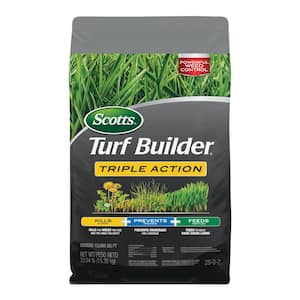
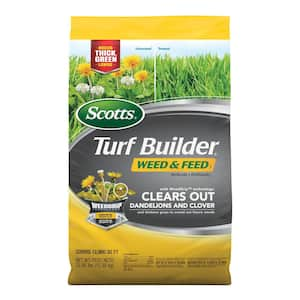
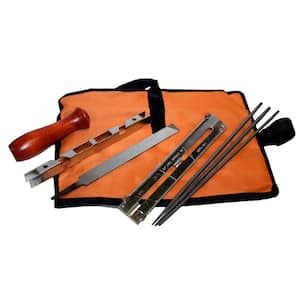
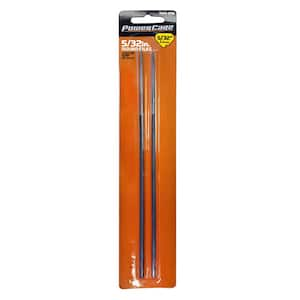
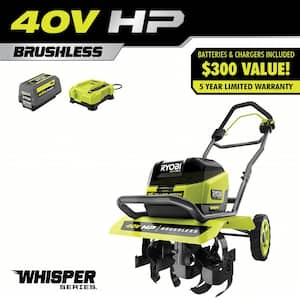
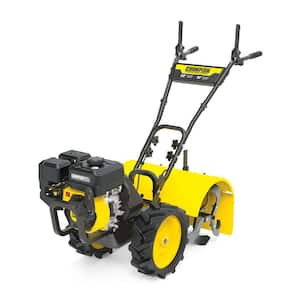
)
)
;Resize=(300,300))
)
)
/2023_P2_Rain_Barrels_Product%20Image%20(square).jpg?im=Resize=(300,300))
)
;Resize=(300,300))
)
;Resize=(300,300))
;Resize=(300,300))
;Resize=(300,300))
)
;Resize=(300,300))
/12_SOIL_B_0420_Social%20media%20(square).jpg?im=Resize=(300,300))
;Resize=(300,300))
;Resize=(300,300))
)
)
)
;Resize=(300,300))
;Resize=(300,300))
;Resize=(300,300))
;Resize=(300,300))
;Resize=(300,300))
)
;Resize=(300,300))
/18Patio_Camden_Seagrass_5pcSeating_Planters_302468736_DTL3_L_Social%20media%20(square).jpg?im=Resize=(300,300))
;Resize=(300,300))
;Resize=(300,300))
;Resize=(300,300))
;Resize=(300,300))
;Resize=(300,300))
)
)
)
.jpeg?im=Crop,rect=(363.69230769230774,1.2307692307692308,958.7692307692308,958.7692307692308);Resize=(300,300))
;Resize=(300,300))
;Resize=(300,300))
;Resize=(300,300))
)
)
;Resize=(300,300))
;Resize=(300,300))
;Resize=(300,300))
)
;Resize=(300,300))
)
)
)
)
;Resize=(300,300))
;Resize=(300,300))
)
;Resize=(300,300))
)
)
/Capello_Spring_Mum_10in_Social%20media%20(square).jpg?im=Resize=(300,300))
;Resize=(300,300))
)
)
;Resize=(300,300))
;Resize=(300,300))
)
)
)
)
)
;Resize=(300,300))
;Resize=(300,300))
;Resize=(300,300))











































